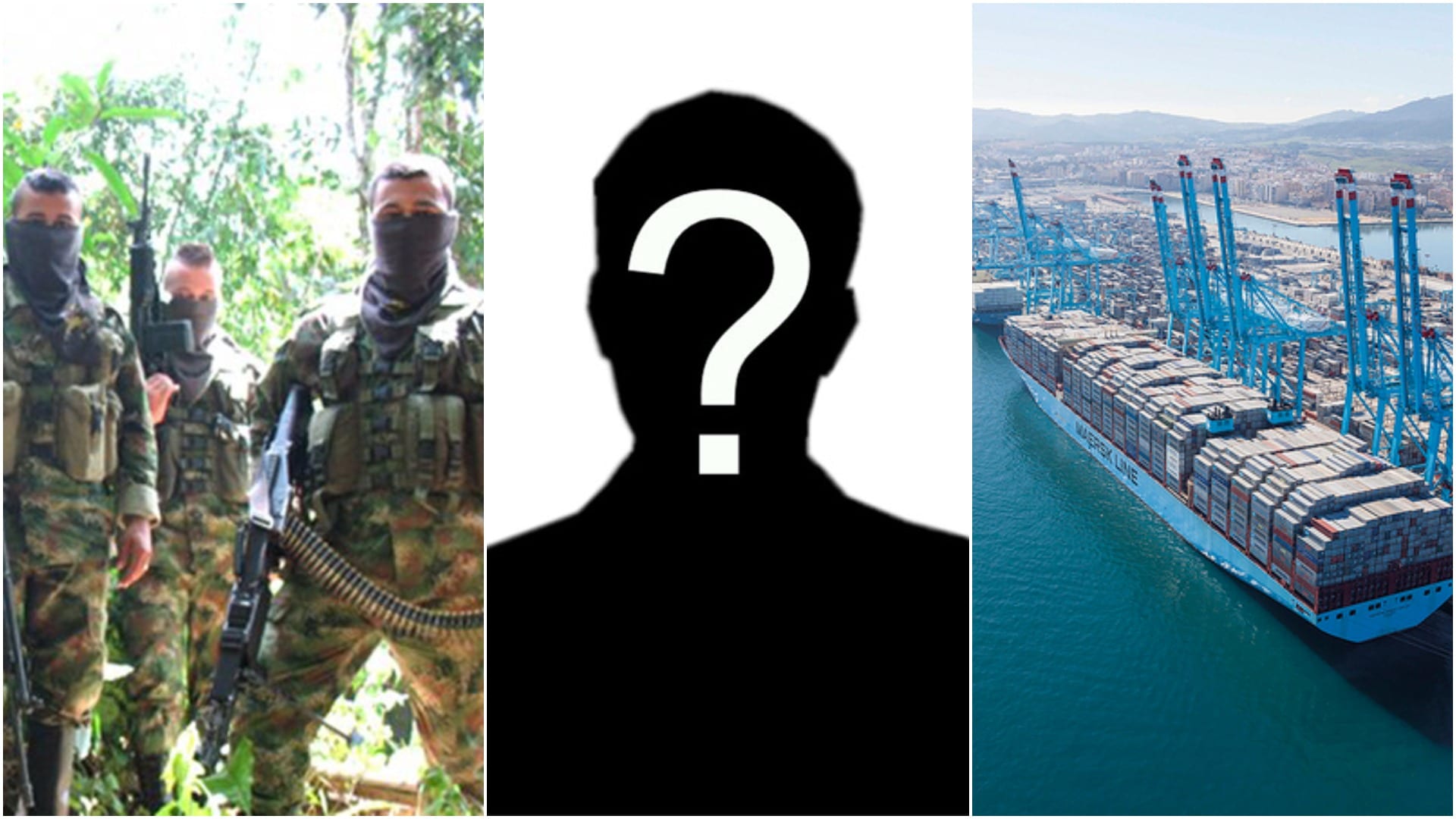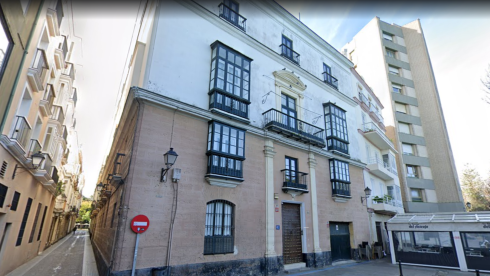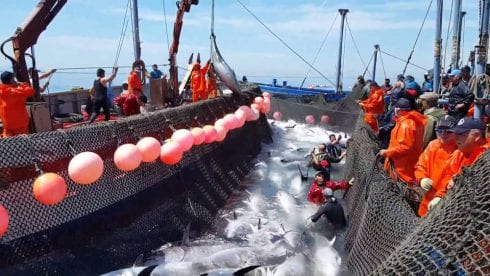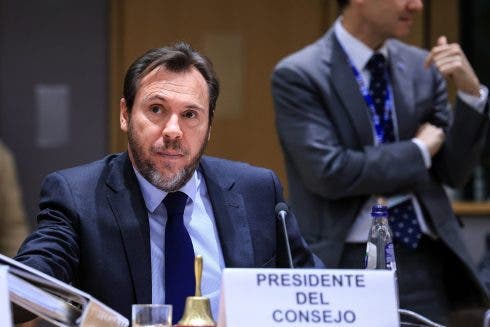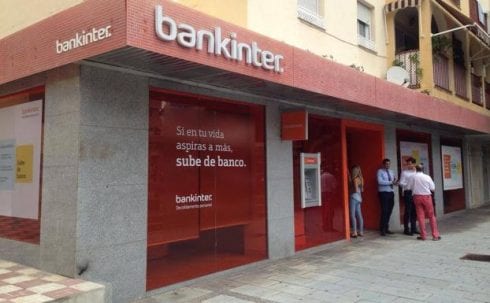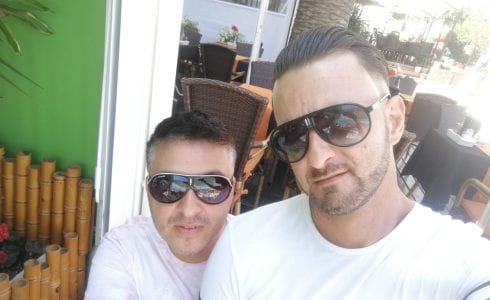 A CAREER drug trafficker has revealed how 30% of profits in Spain are spent on bribing Guardia Civil agents and port workers.
A CAREER drug trafficker has revealed how 30% of profits in Spain are spent on bribing Guardia Civil agents and port workers.
In an explosive interview with El Espanol, the ‘narco’, referred to only as Zape, said corruption is ‘essential’ to business and that ‘everyone has a price.’
“Customs officers, Guardia Civil and businessmen laundering money, everyone has a price,” the Madrid-based trafficker told the reporter, “Without corruption there is no business.”
In 2015, organised gangs involved in the cocaine industry in Spain made more than €2 billion in profits, according to the Intelligence Centre against Trafficking and Organised Crime (CITCO).
And according to Zape, it is thanks to people working on the inside of the law, with bribes at Spain’s ports costing 30% of profits.
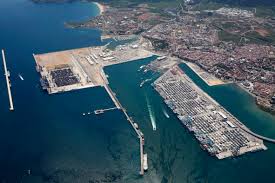
Although mules, fishing boats and sailboats are used to move drugs, the cartels still favour using a freight company to shift large quantities.
Zape’s favoured ports are Valencia and in particular Algeciras in Cadiz – the busiest shipping container yard in Spain and one of the most important in Europe, second only to Rotterdam (Netherlands), Antwerp (Belgium) and Hamburg (Germany).
“Customs have to tell us which companies are clean so we know which ones to work with to go undetected,” explained Zape, who has been in the business for more than 20 years.
“Or we create a company and collaborate with an exporting company from a Latin American country.
“We have to know which container can be relied upon to carry a huge amount of cocaine, from 500 to 2,000 kilos.”
The career-criminal explains how one or several customs officers have to be bribed to ensure that the container carrying the illegal cargo is not registered.
“Then we bribe Guardia Civil agents and finally some of the dockworkers, otherwise it would not leave the port.”
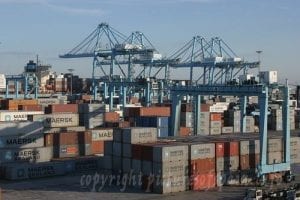
According to Zape, if the load is small (around 100 kilos), then Guardia Civil agents or port workers themselves will take the packages out of the port.
There are few who agree to do this, adds Zape, but enough agree to get the job done.
Once the product has been removed from the container, it will be officially resealed to look as though it hadn’t been opened.
If there are more than 1,000 kilos, the container will have to leave the port on a truck.
This means customs cannot investigate the container and Guardia Civil must allow it to leave.
It then gets taken abroad before being put on a ship and the drugs are divided up.
“In total 30% of profits are spent on bribes,” explains Zape, “The Guardia Civil take most of it, around 16 or 17%.
“If we shift 1,000 kilos, 300 are gone to bribes.”
One kilo of cocaine costs around €24,000 in Spain.
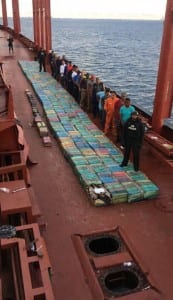
It means one shipment of 300 kilos will produce around €7.2 million in profits.
And the price is worth paying, says Zape.
“They always take their kilos and sell them, usually to local drug gangs.
“But their help is essential otherwise our product would not leave the ports.
“It only needs a few of them to be corrupted. Money is very sweet.”
Some 32,795 kilos of cocaine were seized in Spain last year.
This April saw Policia Nacional interrupt the biggest ever stash in Europe when 8,740 kilos were seized, with a Guardia Civil agent among the 11 arrested.
On July 4, the Central Operation Unit (UCO) arrested 21 people. Ten of them were workers from the port of Algeciras. They were part of a network that introduced large quantities of cocaine and other drugs through containers to deliver them ‘to drug traffickers all over Europe.’
But once the drugs make it into Spain and into the hands of dealers, how is it paid for?
One method is ‘mirror payments’, explains Zape.
Let’s say a Spanish drug trafficker – which has imported cocaine – needs to pay €40 million to a cartel in Colombia.
He will contact a Spanish businessman with large capital and financial interest in South America i.e. a real estate company in Colombia.
The trafficker askes the businessman to make the €40 million payment and, in return, he will be reimbursed 17% of the total transferred.
The businessman will then send it to another company in Colombia which has been chosen by the cartel.
This company will then deliver the €40 million to the cartel through highly complex financial manoeuvres.
A recent study by the Colombian Observatory of Organized Crime said: “[The narcos] They never touch a kilo of drugs, much less a 9-millimeter pistol plated in gold.
“Their weapons are an encrypted mobile phone, a varied portfolio of legally established businesses and an intimate knowledge of the world of finance.”
Another payment method, albeit much slower, is the ‘conejitas’ – or ‘little rabbits’.
It sees Spanish gangs bringing young Latin American women to Spain for several days.
They usually make them travel in groups of ten spread across different flights and landing at different airports – some are passed off as lesbian couples and brought together.
But before returning home, they place €100,000 in €500 bills inside a condom or special tube and insert one inside their vagina and one inside their anus.
If you owed €40 million, you would have to use 10 girls 20 times until you paid your debt.
The women are paid €6,000 for each trip.

